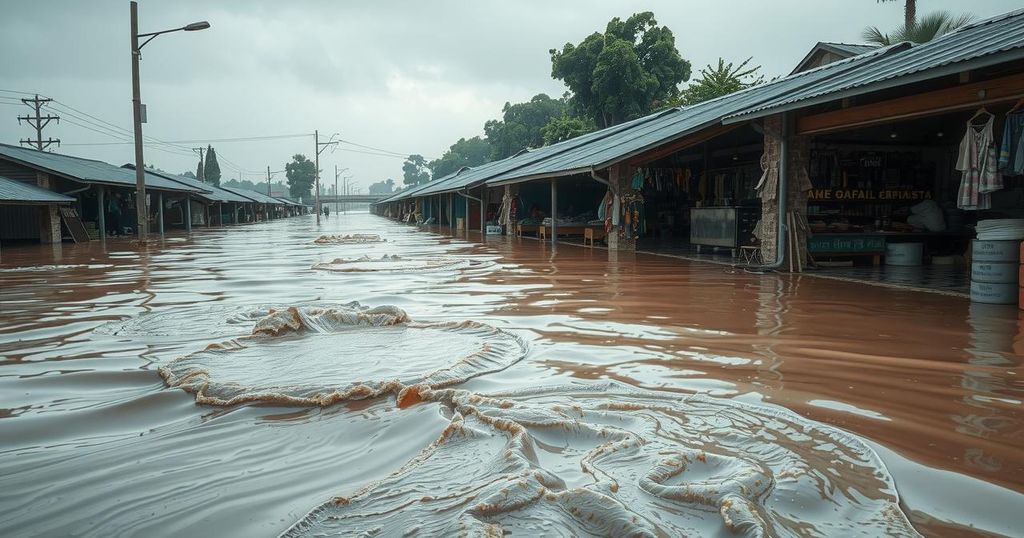Weather
World news
ABUJA, AFRICA, DEATH TOLL, DISASTER MANAGEMENT, EMERGENCY AGENCY, FLOODING, FLOODS, II, IIBRAHIM AUDU HUSSEINI, JI, JIBRIL MUREGI, MAIDUGURI, MOKWA, MOKWA LOCAL GOVERNMENT AREA, MONSOON, NATURAL DISASTERS, NIGER, NIGERIA, NIGERIAN HYDROLOGICAL SERVICES AGENCY, PREMIUM TIMES, THE ASSOCIATED PRESS
Fatima Khan
0 Comments
Floods Kill at Least 111 as Northern Nigeria Battles Climate Change, Dry Spells and Heavy Rainfall
Severe flooding in Mokwa, northern Nigeria, has left 111 confirmed dead with fears of more casualties. The region is grappling with climate change issues, including prolonged dry spells and excessive rainfall. Local officials stress the need for flood-control infrastructure to prevent future disasters and protect lives.
At least 111 people have tragically lost their lives due to devastating floods in northern Nigeria, particularly in the town of Mokwa where farmers sell goods to southern traders, local officials reported on Friday. The flooding was triggered by heavy rains that began before dawn. The Nigerian Hydrological Services Agency has not released specific rainfall measurements from the storm that hit overnight. The authorities warn that the death toll may continue to rise as search efforts are ongoing.
Northern Nigeria has been increasingly affected by extensive dry periods and climate change, leading to sudden and severe flooding during the brief rainy season. Social media has shown troubling images of submerged neighborhoods, with floodwaters so high that only the rooftops of homes are visible. Residents, reportedly waist-deep in water, have been attempting to salvage personal belongings and assist others amid the chaos.
In his comments to the Associated Press, Niger State emergency agency spokesman IIbrahim Audu Husseini indicated that more bodies are being discovered as rescue efforts move forward. This highlights the gravity of the situation, as the region struggles with both flooding and past drought conditions. Mokwa, which lies almost 236 miles west of Abuja, is a central hub for food distribution where local farmers sell to traders.
Jibril Muregi, the chairman of the Mokwa local government area, emphasized the necessity for better flood-control infrastructure, stating that such measures have long been overdue. He noted that effective flood management systems are vital for protecting lives and properties against future calamities. His comments reflect growing concerns over the region’s preparedness for extreme weather events.
In a related incident last September, serious flooding in the northeastern city of Maiduguri, also due to heavy rains and a dam failure, resulted in 30 fatalities and displaced millions. This situation exacerbated the already dire humanitarian crisis linked to the ongoing Boko Haram insurgency. The growing frequency of these disasters underscores the critical need for comprehensive environmental strategies to mitigate the challenges posed by climate change in Nigeria.
In summary, the recent floods in northern Nigeria underscore the severe impacts of climate change and inadequate infrastructure, claiming at least 111 lives. As communities battle the effects of both dry spells and sudden rainstorms, local officials stress the urgent need for flood-control improvements. With similar disasters affecting different regions, Nigeria faces a pressing humanitarian crisis that requires immediate attention and action.
Original Source: www.news4jax.com




Post Comment